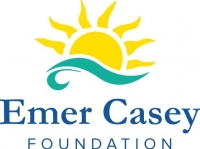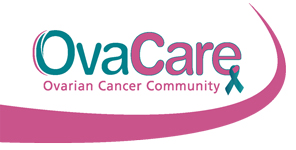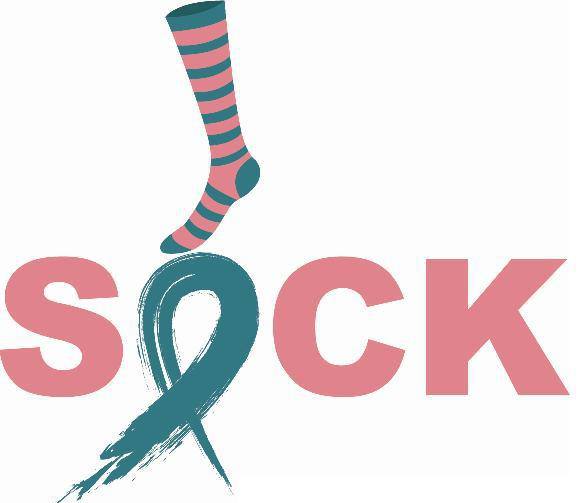Gynaecological Biobank
The Gynaecological Biobank was set up in 2004 to support research between Trinity College Dublin and St James’s Hospital. Patients attending the gynaecology service who are scheduled for surgery and/or chemotherapy may be invited by their doctor to sign a consent form to donate samples and healthcare data to the biobank.
The biobank collects samples from all the gynaecological cancers and also from non-cancer patients; these include ovarian cancer and benign ovarian disease, endometrial cancer and benign endometrial disease, cervical cancer, vulva cancer and vaginal cancer. The biobank stores bloods, excess tissue from surgery, urine and ascites fluid (fluid produced by some ovarian cancers). The research focuses on developing new tests and better treatments for cancer. Details on how the biobank collects, stores, uses and shares any samples and healthcare data about you is detailed in our Gynaecological Biobank privacy notice.
Governance
The Gynaecological Biobank is jointly managed by St. James’s Hospital and Trinity College Dublin, who are joint data controllers of the biobank and are responsible for keeping your biomaterial and personal data secure. The Gynaecological Biobank is governed by a biobank steering committee which is made up of clinical and scientific staff. You can contact us by email at cancerbiobanks@stjames.ie
A number of hospital consultants work alongside the scientists and assist in the consent process for the biobank. Consultants include; Professor John O’Leary, Prof Feras Abu Saadeh, Dr Waseem Kamran, Dr Tom D’Arcy, Dr Dearbhaile O’Donnell, Dr Charles Gillham, Dr Paddy Maguire, Dr Catherine O Gorman and Professor Karen Cadoo.
The research group are based in the Department of Obstetrics and Gynaecology in the laboratories in the Trinity Translational Medicine Institute at St James’s Hospital.
Part of the research group is in the Department of Histopathology based in the Coombe Hospital and includes the Cerviva consortium who work on HPV associated cancers.
Collaborations
In addition to internal research within Trinity and St James’s, your biological samples and related healthcare data information may be shared for research projects which we hope will improve the prevention, diagnosis and treatment of gynaecological cancer and gynaecological diseases.
Research projects may include early detection, diagnosis, new treatments, cancer genomic research, medical devices, how cancer changes over time, cancer prevention and the causes of cancer in families.
With your agreement, your donated samples and related healthcare data may be included in studies in Ireland or abroad to speed up developments to improve outcomes for those with gynaecological diseases and gynaecological cancer. Your identity will not be shared as your details will have been given a unique code. Any samples and information that you share with the Gynaecological Biobank will be treated with the highest standards of security and confidentiality, in accordance with data protection law.
Current Academic Collaborations
Examining the role of a protein KFBPL in response to treatment in ovarian cancer
Lead: Prof Tracy Robson
This project involved the sharing of tissues and blood and healthcare data and was published in DOI: 10.1038/s41416-019-0649-5
Examining whether spectroscopy can help diagnose ovarian and endometrial cancer earlier
Lead: Prof Fiona Lyng
This project will involve sharing of blood samples where they examine the scattering of light that occurs when a beam is directed onto the sample and interpreting whether this is useful for early detection.
Examining the role of bacteria (microbiome) in response to treatment on ovarian cancer by assessing types and amount of bacteria in ovarian tissue
Lead: Dr Radka Fahey
This project involves sharing of ovarian tissue samples so that the bacteria can be examined and sequenced and checking if this influences how tumours respond to treatment
All Ireland Cancer Liquid Biopsy Consortium (CLuB)
Leads: Prof Lorraine O’Driscoll (TCD), Prof Paul Mullan (Queens), Dr Pilib O’Broin (Galway)
This project is examining components of the liquid biopsy; circulating tumour cells, extracellular vesicles and circulating tumour DNA in a blood sample and evaluating whether combining these together gives us more information on the cancer and how it will respond to treatment.
Investigating the role of NKAPL in acquired chemoresistance in high-grade serous ovarian cancer
Lead: Prof Antoinette Perry
Previous work in UCD found a gene (called NKAPL) that changes when tumours become “resistant”. NKAPL looked different in patients compared to healthy women and it changed after chemotherapy. This suggests that NKAPL could be one of the reasons why the anti-cancer drugs stop working and this project will examine patient blood and tissue samples for NKAPL.
Withdrawal
You can withdraw from taking part in the biobank at any time, as outlined in our attached Withdrawal From The Biobank Policy. Withdrawal requests may be made verbally, in writing or via phone to the biobank team or a healthcare professional without the need to provide a reason for this.
If you would like to withdraw, contact Sharon O’Toole on 01-8962728 or cancerbiobanks@mastjames.ie
From this point on, your samples and healthcare data will not be used for research. However, it will not be possible to destroy samples and healthcare data already shared for research, before this date as this could impact on the research results. The biobank will keep a record that you changed your mind and record the destruction of your samples and healthcare data.
Conferences and Publications
Researchers usually publish their results in scientific/medical journals or present them at conferences so that others can learn from their research. You will not be identified in any journals or presentations. The biobank hopes these results will improve health care for future patients. Examples of publications using biobank samples can be found in the profile links of the scientific leads.
Associated Charities
Many charities across the country work closely with the research groups and in some cases help to fund the work of the biobank.
Gynaecological Oncology: Emer Casey Foundation, OvaCare, SOCK, St James’s Hospital Foundation.







